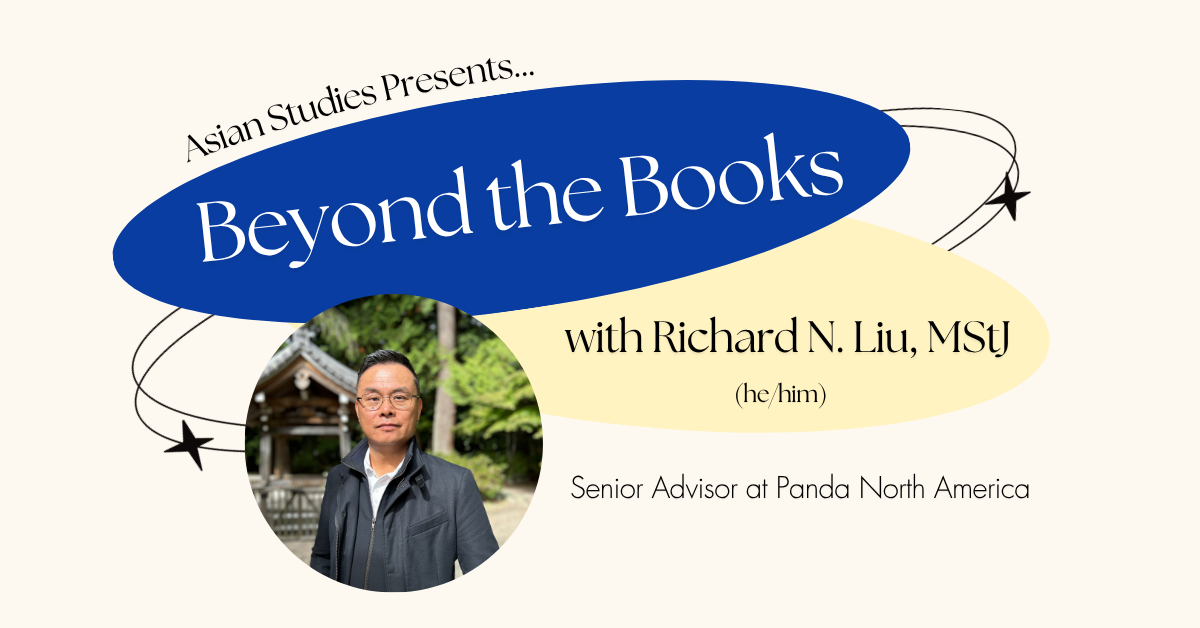

On March 25, 2025, the Japanese Language Program, in collaboration with Kyogo Nakayama – an exchange student from the University of Tokyo, Japan – hosted a Japanese tea workshop at the Asian Centre. Mr. Nakayama, a member of the Global Japanese Tea Association (https://gjtea.org/), introduced participants to the rich and diverse world of Japanese tea. The Global Japanese Tea Association is a non-profit organization dedicated to promoting the appeal of Japanese tea worldwide.
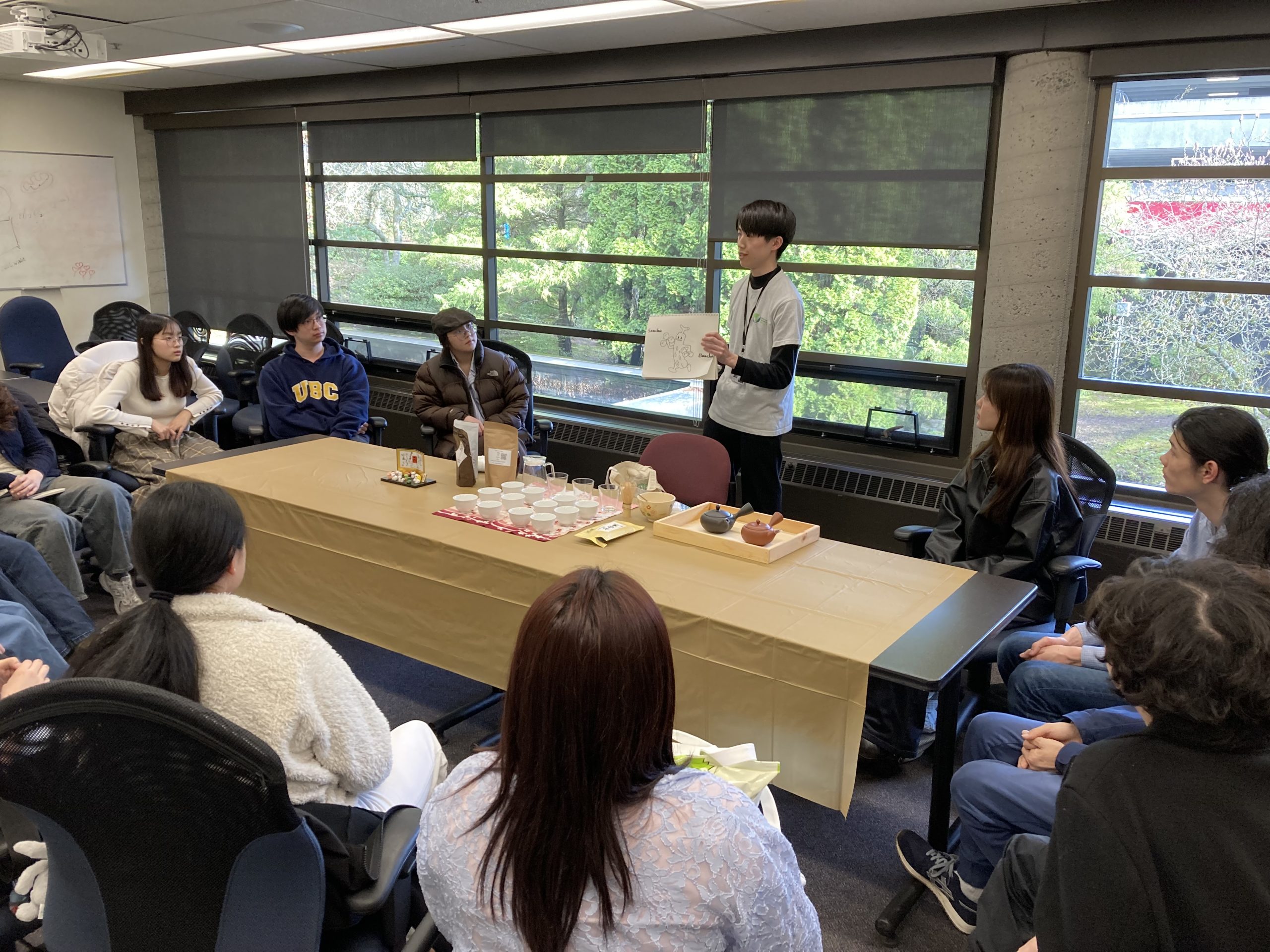

Fifteen students currently enrolled in Japanese language courses joined the event. After a brief introduction to the Japanese tea culture, Mr. Nakayama guided participants through a tasting session featuring different types of Japanese tea. Before each tasting, he gave a short lecture on the tea’s characteristics – such as its taste, color, and harvesting methods – followed by an engaging listening activity in Japanese. He also brewed each type of tea in front of the students, allowing them to experience the aroma and flavors firsthand.
The students first sampled Gyokuro, a refined green tea known for its rich umami flavor, then moved on to Genmaicha, a roasted rice tea. Next, they experienced Hojicha, a roasted tea with a toasty fragrance, before trying a special blended tea infused with Canadian maple syrup. The session concluded with a tasting bitter Matcha.
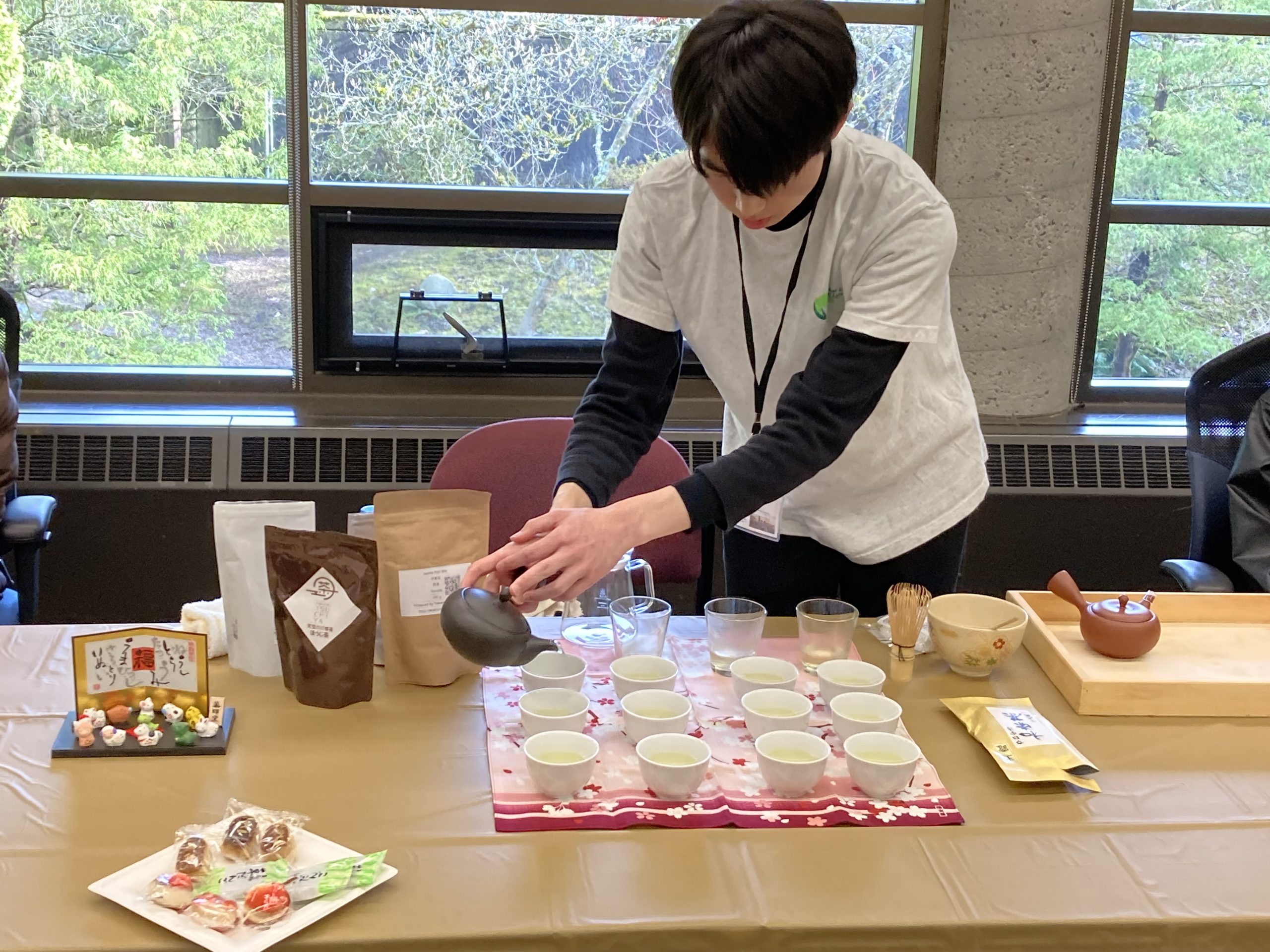

The event was filled with laughter, thanks to Mr. Nakayama’s engaging talk and the fun tea-related listening activities. The friendly and interactive atmosphere made for an unforgettable experience. The event didn’t end with the official session – many participants remained, eager to keep the conversation going and savor the moment. It was clear that a genuine sense of connection and community had been built.
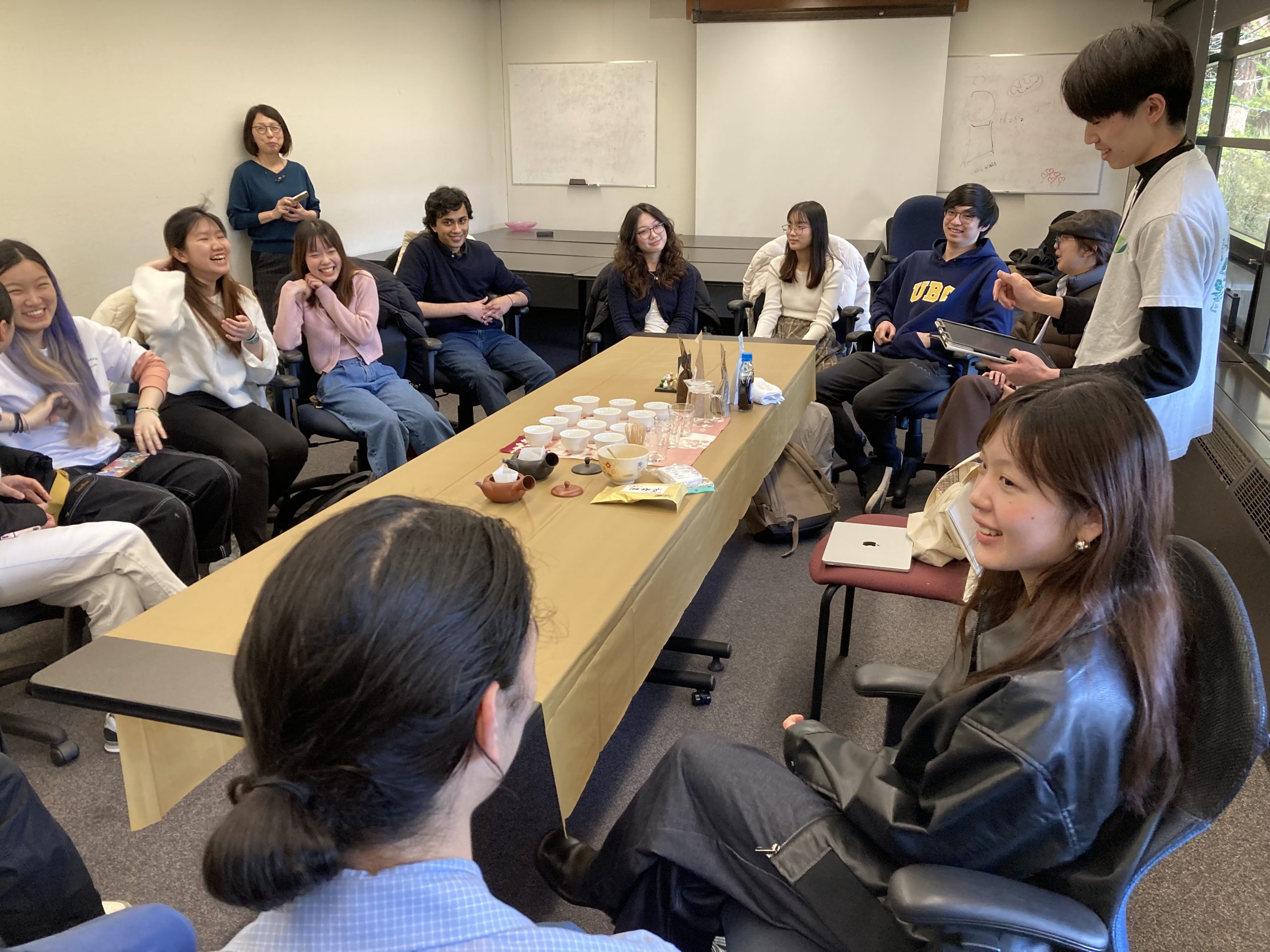

“The event provided a great opportunity to learn about the different types of Japanese teas whilst being able to try them out. Of all those available for us to try I personally found the Genmaicha (Brown rice green tea) to be the most appealing. Not only were we fortunate enough to enjoy a variety of teas, but we also had the chance to try out a large assortment of bite-sized Japanese snacks. In addition, the presentation conducted by the Tea specialist was most entertaining. It was a great way to spend an evening. Who knew learning about Japanese tea could be this much fun? After having the opportunity to attend this event, I truly believe that there is no better way to spend an evening than to drink Japanese tea and enjoy some Japanese snacks.”
To conclude this recap, here is a message from Kyogo Nakayama, the collaborator of the event:
I have a dream that one day many people will enjoy Japanese tea culture. I am from Japan, and I came here as an exchange student. I think that studying abroad is not only about experiencing foreign culture, but also about representing my country’s culture. That is why I tell Japanese culture to other students.
I’m sure everyone had a lot of homework and tests, but I’m also sure they were able to relax and enjoy the tea event without any stress. I hope that people enjoyed this as an “experience” that included the tranquil atmosphere of brewing Japanese tea, something that cannot be experienced by simply buying and drinking a matcha latte. I wonder if everyone was able to sleep well at night because they were drinking a lot of tea, though Japanese tea contains a relatively small amount of caffeine.
I would like to thank the Japanese language program teachers who cooperated with me and the students who attended the event.
P.S. My interest in tea started with Pokémon. In the game, you can combine Pokémon to create a stronger Pokémon. I wondered if the same thing—like genetic modification—was possible with real creatures, so I got into molecular biology. While I was researching the DNA of tea in the university, I became interested in tea itself. If it were not for Pokémon, I might never have become interested in tea.
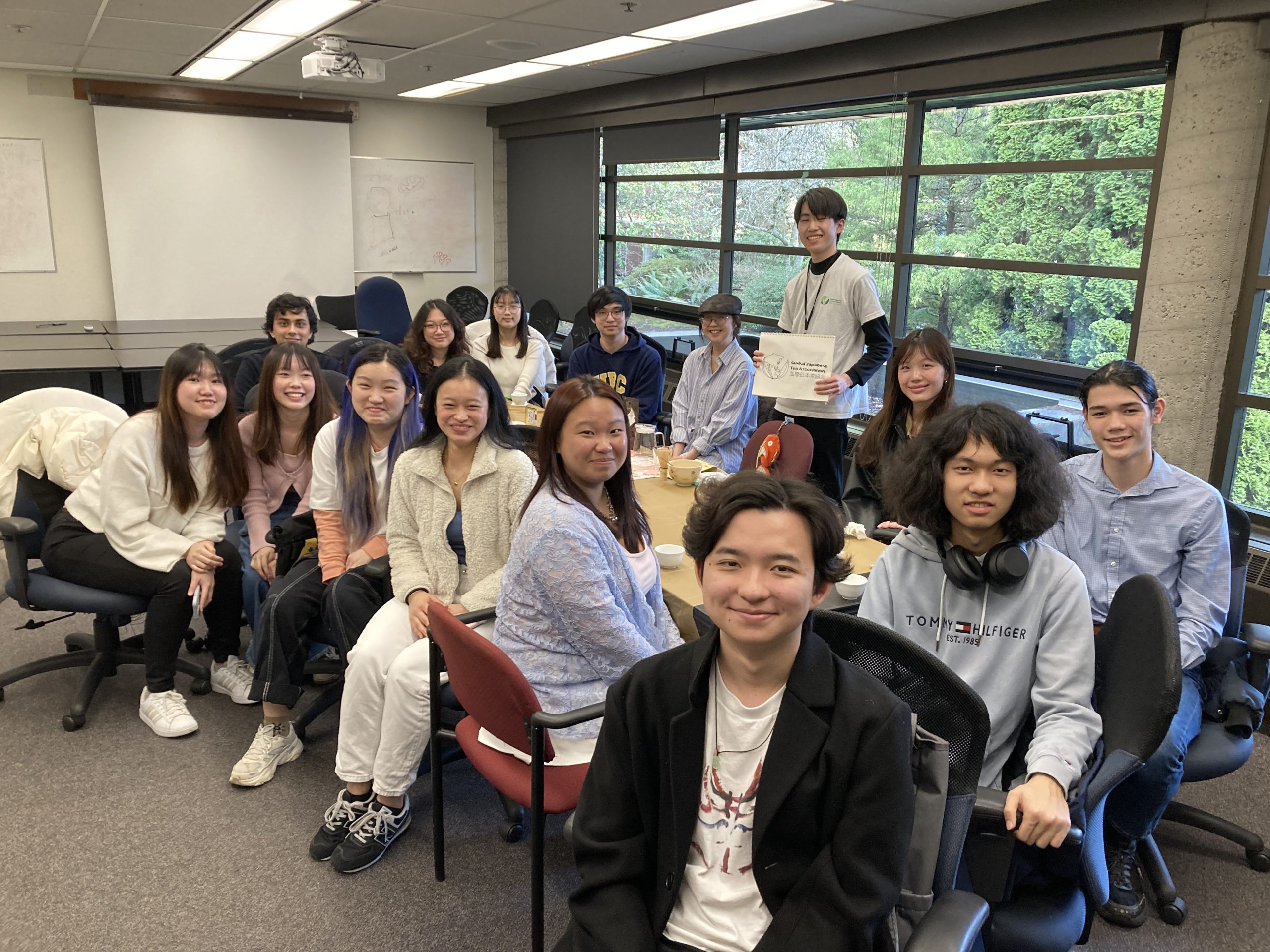

As the term comes to an end, Mr. Nakayama will soon return to Japan, where he plans to take part in research on the DNA of tea plants. This workshop provided Japanese language students with a valuable cultural experience, offering a moment of relaxation and connection amid their busy schedules. The time spent enjoying Japanese tea and engaging in warm conversations will surely remain a cherished memory for all who attended.


